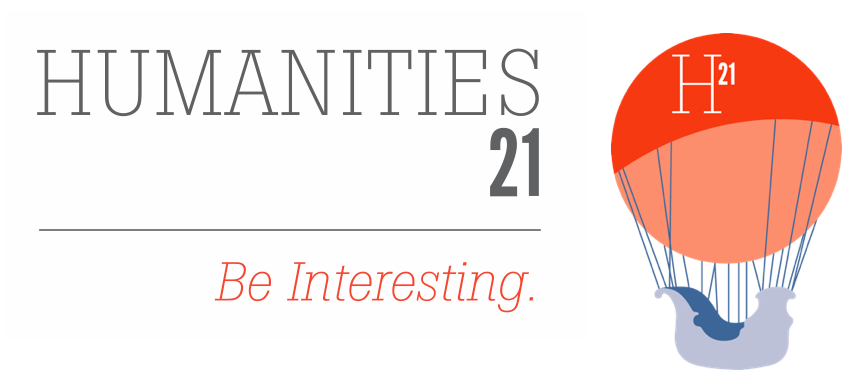Arts@work profile — nick fabbri
Nick Fabbri studied a Bachelor of Arts (Honours) with majors in History and Literature at the University of Melbourne.
He currently works with the Australian Red Cross Directorate of Volunteering.
Read more about Nick’s career journey below.
What did you study and what inspired you to pursue this path?
I studied a Bachelor of Arts (Honours) in History at the University of Melbourne. My majors were in History and Literature. I chose to study that degree because I wasn’t sure what I wanted to focus on professionally and was attracted to the expansive nature of the ‘Melbourne Model’ and its wide range of breadth subjects, which seemed to align more closely with the approach to undergraduate education in the United States. I’d always loved history and literature at high school and in my personal life, so the opportunity to spend a few years studying both of those subjects through a formal academic approach was enticing. Through the student mobility opportunities on offer at Melbourne, I was able to spend the final two semesters of my BA at the University of Nottingham Ningbo China (UNNC) with the support of the Prime Minister’s Asia-Australia Endeavour Award. At the UNNC, I was able to fulfil the requirements for both my majors and secure credit for an internship with the Australian Trade Commission. One of the appeals of the Melbourne Model is going on to complete a professional graduate degree, and while I had intended to begin a Law degree immediately after graduating, I found myself wanting to work for a few years.
What is your current occupation?
I’m a Project Coordinator at the Australian Red Cross within the Volunteering Directorate.
What aspects of your role do you enjoy the most?
Over the past 18 months I’ve worked with incredible and kind people in the Directorate of Volunteering and Australian Red Cross more broadly. It’s been fascinating to see how a humanitarian organisation as large as Australian Red Cross operates in terms of strategic planning, reporting, budgeting, and project management to deliver on essential and lifesaving services around the country, in addition to serving as an important social institution for millions of Australians to connect with each other and develop a sense of community. I also work closely with volunteers and members through my role within Emergency Services as Deputy Divisional Operations Officer in the Central Metro region of Melbourne. However, the aspect of the role I enjoy the most is undoubtedly being able to work closely with talented professionals within my Directorate who have many decades of experience across NGOs, humanitarian organisations, government, and in corporates all around the world. I’ve learned so much about leadership, empathy, and developing healthy organisational culture from them.
Thinking back, what was a highlight of your tertiary study?
The ability to take two semester exchange to China for the final year of my Bachelor of Arts. I was able to learn (very basic!) Mandarin, work at the Australian Trade Commission in Shanghai, and do a lot of travel alongside completing my academic work the University of Nottingham in Ningbo.
Were there any co-curricular activities you found particularly valuable?
I think I spent more time on co-curricular activities at university than I did studying! I was involved in setting up 180 Degrees Consulting Melbourne, which provides pro-bono management consulting advice to non-profit organisations which otherwise wouldn’t have been able to afford it. Aside from helping social purpose organisations solve problems and perform better, 180 provided valuable and rewarding work experience for students which helped prepare them for a competitive job market.
How do you think your humanities education has shaped you personally and professionally?
My humanities education has been critically important to both my personal and professional development. The rigorous nature of coursework and research at the University of Melbourne meant that I was well equipped for research, analysis and writing tasks in the workforce. A lot of my humanities education has taken place outside of the classroom volunteering for various organisations and communities, often in entrepreneurial settings. This helped me to develop soft skills such as leadership, diplomacy, and communication which continue to play a big role in my personal and professional life. I also write and produce a podcast on the side of my work at the Red Cross so I can keep developing my passions for the arts and storytelling. I interview people who have led meaningful and interesting lives, and write reviews on art exhibitions, theatre, live music, and whatever else interests me. If I’m honest with myself, I feel most myself when I’m engaged in these creative endeavours, and a lot of my ability to tell stories or to express thoughts and feelings comes from being stretched through the humanities at the University of Melbourne.
What career advice would you give to current students or recent graduates?
For current students especially, I’d just try to instil a sense of how precious your time is at any higher education institution, how fortunate you are to be there, and how many possibilities you have within you provided you use your time well. With this orientation, I think all students and recent graduates are probably more likely to live a life that is authentically their own, to be more present and enjoy the journey rather, to define success on their own terms, and to pursue a career which they’re genuinely interested in and animated by, and which will hopefully make a positive difference to others.


